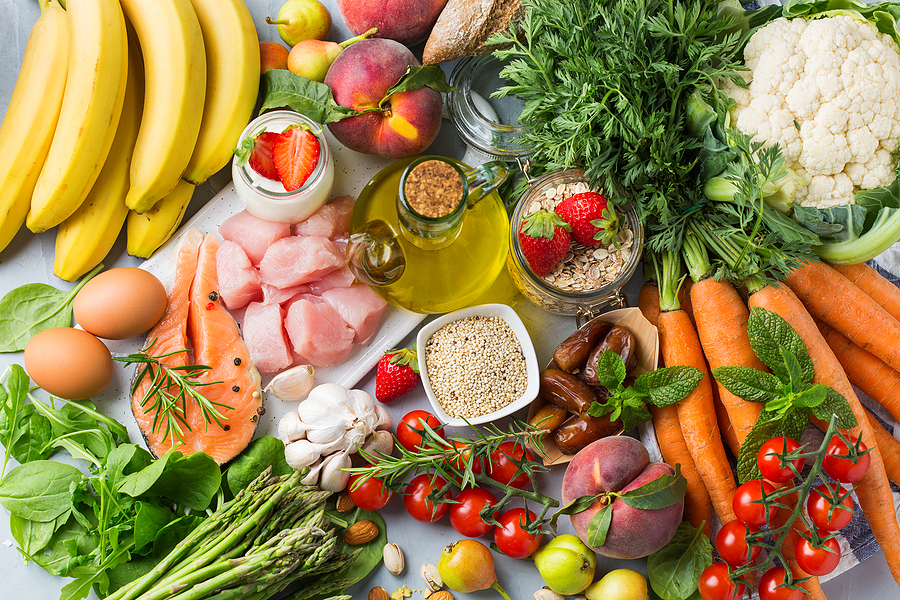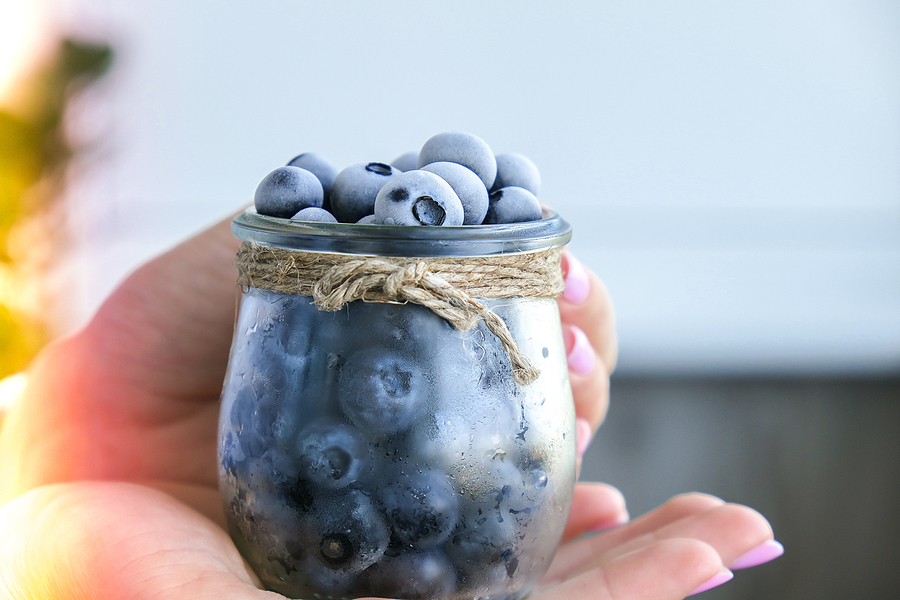Updated 08/02/2020
The look Lisa gave me when I suggested she try eating more fats was priceless. It was clear she thought I’d lost my mind. “But doesn’t eating more fat make you fat?” she asked? I wasn’t surprised – she certainly isn’t the first person to ask that question. I often have to remind people that a well balanced diet that contains protein, carbohydrates and healthy fats is essential to achieving health and wellness and can help you lose weight.
The key word there is healthy. I’m not talking about loading up on fast food or processed foods loaded with transfats. Many women are concerned, like Lisa was, that fat in their diet would lead to weight gain. But the truth is, healthy fats are actually vital to weight loss. They help to decrease inflammation, control blood glucose levels, and facilitate the functioning of blood vessels so nutritional uptake is maximized. This works to reduce our cravings and it resets metabolism. These are important factors in maintaining weight in a healthy range.
That’s why it’s so important to eat enough Omega-3 Fatty Acids, which are found in foods such as eggs, walnuts, and certain types of fish (among other things), or can be taken in supplement form.
Omega-3 fatty acids can positively impact degenerative diseases like heart disease, hypertension, rheumatoid arthritis, and many others. Omega-3 fatty acids have anti-inflammatory properties that can really benefit women, especially in menopause. For more information, read my article, “Balancing Your Omega-3 Fatty Acids – Essential For Health and Long Life.”
In past generations, people consumed a healthy diet, mostly because there was no other choice. Chemically preserved and processed foods which are readily available today didn’t exist. Our ancestor’s omega-6 to omega-3 ratios were healthier and more balanced.
Finally, people today are being encouraged by their medical practitioners to forgo the convenience of processed foods and eat in a healthier way. While crash diets and fads come and go, one style of eating makes a lot of sense long term: The Mediterranean diet. I’ve been promoting this way of eating (and enjoying it myself) for years.
Why eat Mediterranean style?
The Mediterranean diet isn’t a diet in the traditional sense. It won’t have you counting calories or measuring food, and you certainly won’t feel hungry eating this way. This diet plan is based on centuries old traditions from cultures in Mediterranean regions.
Research has shown that eating the Mediterranean way has demonstrated benefits, especially for heart health. Evidence supports the idea that the Mediterranean diet may also help with weight loss and weight management; fighting some cancers and chronic diseases; maintaining brain health as you age; avoid diabetes; reduce depression; and prevent Parkinson’s Disease.
It has also been found that eating Mediterranean-style is one of the most effective ways to work natural omega-3 fatty acids, monounsaturated fats (MUFAs) and phytonutrients into your diet.
Understanding the Mediterranean diet pyramid
This eating plan began to gain attention as a healthy alternative to the typical Western diet decades ago, and in 1993 a food and nutrition nonprofit, Oldways, worked with the Harvard School of Public Health and the World Health Organization (WHO) to develop an alternative to the USDA Food Pyramid: the Mediterranean diet pyramid.
When looking at this pyramid, you can see that it’s not just about food – it’s about living an active lifestyle with social connections as well. The base of the pyramid, in fact, is focused on being active – any way you choose – and preparing and eating meals with family.
The mainstays of the diet are whole grains, good fats, fresh fruits and vegetables, fish, and minimal consumption of any meats other than fish, as well as an active lifestyle and time with family.
Whole grains, fruits and vegetables, legumes, olive oil and other healthy fats, herbs, spices, nuts and seeds are the foods you should build your meals around each day.
Moving up the pyramid, fish and seafood, which are great natural sources of Omega-3s, should be eaten at least twice per week. Yogurt, cheese, poultry and eggs are further up the pyramid, and should be enjoyed in moderate portions a few times per week. And at the tip of the pyramid are meats and sweets, which should be saved for special occasions.
And while water is the beverage of choice on a Mediterranean diet, here’s some good news for many women: red wine is also encouraged in moderate amounts, up to one glass per day for women, two for men.
How to Adopt a Mediterranean Diet
As you can see, the Mediterranean diet is really a way of life. It places emphasis on fresh, whole foods instead of processed, prepackaged or preserved foods. Meals should be a leisurely event, shared with family and friends.
This information may be new, or it may be reinforcing what you’ve heard before. Either way, some simple shifts can lead to remarkable benefits! Remember, it’s not about a specific food; it’s the overall eating pattern that makes a big difference. Here are a few tips to keep in mind as you begin.
Brightly colored fruits and vegetables should fill your plate daily
This shouldn’t be difficult – the choices are endless! Recipes for grain bowls, vegetable soups, and salads can make it even easier to make half of your meal delicious, nutritious vegetables. A fruit salsa tastes great on top of fresh fish. There are so many creative ways to boost your produce intake — have fun with it!
Pay close attention to portion size when eating meat and dairy
Enjoying some meat is okay on occasion, but try to find ways to reduce the amount you’re eating. Instead of a large steak, for instance, try small strips of sirloin in a vegetable stir fry, or add a cube or two of steak to a skewer filled with fresh vegetables and grill. Make meat an add-on, not the main dish. And grass fed beef or free range poultry are better than conventionally grown options.
When it comes to dairy, yogurt is a good choice on occasion. Small amounts of traditional, artisan cheeses are also fine – just don’t go overboard!
Don’t skimp on the seafood or healthy fats
Certain kinds of fish, such as tuna, herring, salmon and sardines are a terrific source of those essential Omega-3 fatty acids. Shellfish, like mussels, oysters and clams are also beneficial to the brain and heart. Center your meal around seafood at least twice per week.
Other healthy fats are also an essential component of the Mediterranean diet. Cook with extra-virgin olive oil, add nuts and seeds to salads, snack on olives or fresh avocado slices.
Ease into vegetarian meals
In the beginning, once a week may seem tricky. But as you begin to learn what you can do with legumes, whole grains and fresh vegetables, you may find it easier than you thought. Herbs and spices are key for varying the flavor and feel of a dish. Strive to eat vegetarian meals two to three nights per week.
Rethink your grains
Whole grains are far more nutritious than refined grains. If you’ve never tried the wide variety of whole grains available, start now by cooking bulgur, freekeh, barley, farro or brown rice. These make a great base for a vegetarian meal, and are much healthier than white rice or pasta.
For those on a gluten-free diet, there are plenty of whole grain options to try, such as brown rice, quinoa, and sorghum.
Satisfy your sweet tooth with fruit
If you like something sweet at the end of a meal, reach for fresh or dried fruit instead of cake, cookies or pie. There are so many delicious options, you could have a different “treat” every day!
I heard from Lisa again the other day, a few weeks after I’d talked to her about healthy fats. She told me she couldn’t believe it. She’d started drizzling her salads with olive oil instead of eating them dry, snacking on nuts and olives, and eating salmon once a week. And she’d lost a few pounds without even trying! She told me that she was enjoying these changes so much, she didn’t even think about it anymore. That’s what I’ve heard from many women who make the shift to a Mediterranean eating plan.
What I love about the guidelines of the Mediterranean diet is how relaxed they are. You are still in control of what you eat – no measuring, calorie counting or rigid meal plans to follow. Preparation isn’t the focus of the food; it’s all about how bright and fresh it is! And with all the recipes available online or in various cookbooks, variety is easy to find. Most recipes are simple to prepare, and the spices and herbs make them absolutely delicious. Even if you aren’t ready to fully commit to a Mediterranean lifestyle, trying just one idea at a time will produce health benefits. Even the smallest changes can reap big rewards!








